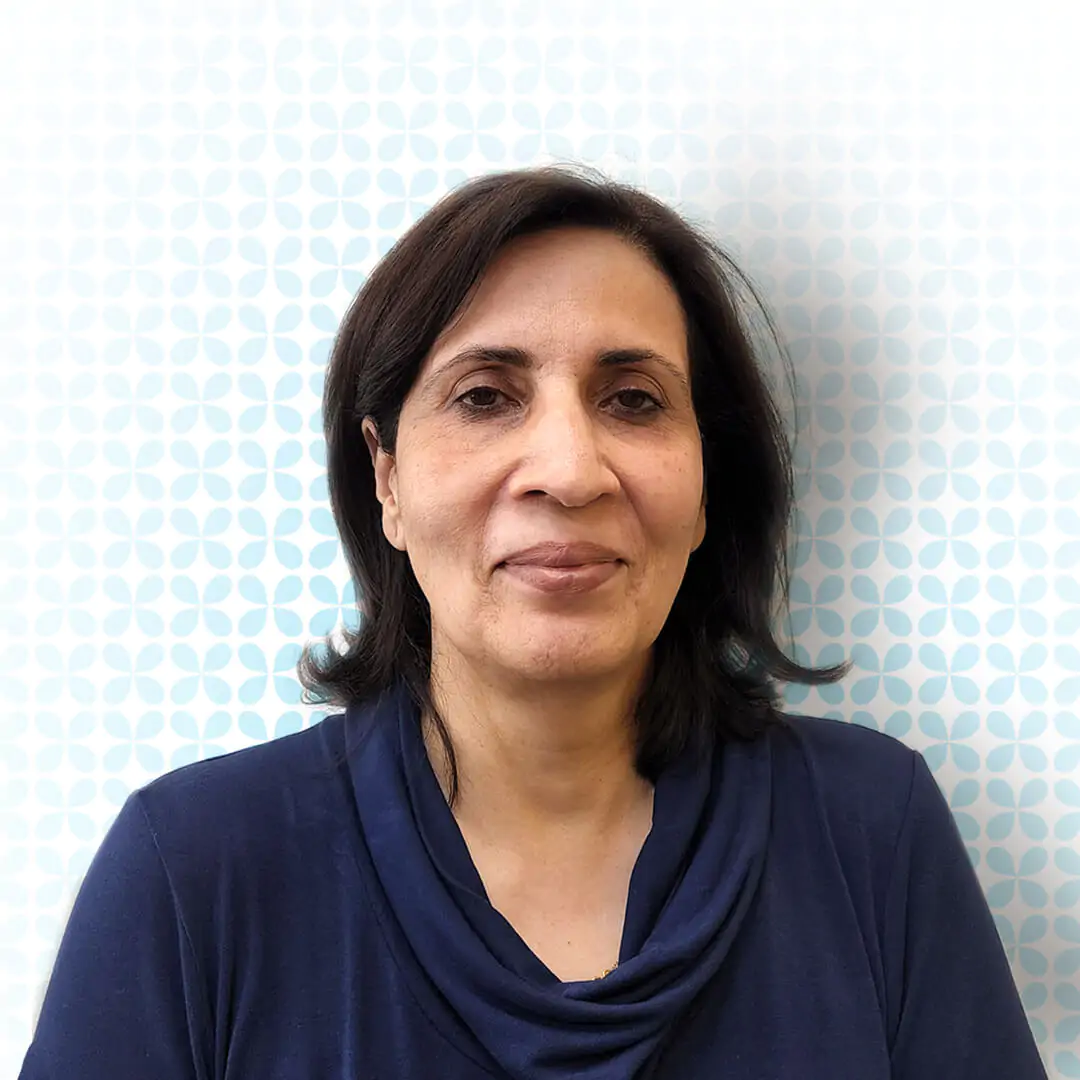
Dr. Ayesha Khan
MBBS, FCPS, FRCSEd
Consultant Ophthalmologist in Paediatric Ophthalmology
Location:
Biography
Dr. Ayesha Khan is a Consultant Ophthalmologist in Paediatric Ophthalmology at Moorfields Eye Hospital Dubai in Dubai Healthcare City.
She is an experienced Ophthalmologist, specialising in the clinical and surgical treatment of a full range of Children’s Eye Diseases, including Retinopathy of Prematurity, Retinoblastoma, Cataracts, Glaucoma, Squints, and eye injuries, amongst others.
She is also experienced in the surgical treatment of adult squints & cataracts.
After doing her fellowships in Ophthalmology from the College of Physicians & Surgeons, Pakistan (FCPS), & Royal College of Surgeons, Edinburgh, UK (FRCSEd), Dr. Ayesha completed her clinical & surgical training in Paediatric Ophthalmology & Strabismus from University of Toronto, Canada.
After that, she headed the Department of Paediatric Ophthalmology at a tertiary care Eye Hospital in Pakistan before moving to Canada in 2010. She served as an Associate Professor and Consultant Paediatric at the prestigious Montreal Children’s Hospital of the McGill University Health Centre.
After that, she did a short stint in the UK before moving to UAE in January 2020. Since then, she has been actively practising Paediatric Ophthalmology in Dubai.
Dr. Ayesha has done extensive research work in Paediatric Ophthalmology and has several publications to her credit. She is a member of the American Association for Paediatric Ophthalmology & Strabismus.
Services Provided by Dr. Ayesha Khan
Paediatrics
Squint
About Squint (Strabismus)
A squint, medically known as strabismus, is a condition where the eyes are misaligned and do not look in the same direction. One eye may turn inwards, outwards, upwards, or downwards while the other remains focused. This misalignment affects both children and adults, though its causes and implications may differ depending on age.
In children, a squint often develops due to an imbalance in the muscles controlling the eyes, leading to poor coordination between them. If left untreated, it can cause amblyopia, or “lazy eye,” where the brain begins to favour one eye, potentially impairing vision in the affected eye. Early detection, including glasses, eye patches, or surgery, is crucial for successful treatment.
In adults, strabismus can arise from trauma, neurological conditions, or illnesses like stroke or diabetes. It may cause double vision, headaches, or eye strain, affecting daily activities and quality of life. Treatment options include corrective lenses, vision therapy, or surgery, depending on the underlying cause.
Effective management of squint is vital for improving visual function and overall eye health in children and adults.
At Moorfields Eye Hospitals UAE, our highly qualified adult and paediatric squint surgeons have extensive experience diagnosing and treating all forms of squint.
Paediatric Glaucoma
About Paediatric Glaucoma
Glaucoma is the name given to a group of eye conditions in which the pressure within the eye (intraocular pressure) is raised which in turn damages the optic nerve, (the nerve that goes from the eye to the brain) and can lead to permanent irreparable vision loss if left untreated.
Childhood glaucoma, also referred to as congenital glaucoma, paediatric, or infantile glaucoma, is a rare condition that may be inherited, occurring in babies and young children. It is usually diagnosed within the first year of life.
Paediatric Cataract
About Paediatric Cataract
We all have a natural lens inside the eye that helps us to see clearly. The lens should be transparent like a clean crystal but a cataract makes the lens cloudy. Paediatric cataract is a condition in which the lens of the eye is cloudy, either partially or completely. It can be a congenital condition, present at the time of birth or acquired later, developing after the birth. A cloudy lens can occur in one eye (unilateral) or both eyes (bilateral).
Retinopathy of Prematurity (ROP)
About Retinopathy of Prematurity (ROP)
Retinopathy of Prematurity (also called ROP) is an eye disease that affects many premature babies. ROP happens when a baby’s retina doesn’t fully develop in the weeks after birth. As a consequence of premature birth, abnormal blood vessels are formed, which are fragile and can leak, scarring the retina and pulling it out of position. This causes a retinal detachment, which is the main cause of visual impairment and blindness in ROP. Some cases of ROP are mild and correct themselves, however, others require surgery to prevent vision loss or blindness. Surgery involves using a laser or other means to stop the growth of the abnormal blood vessels, making sure they don’t pull on the retina. As ROP has no signs or symptoms, the only way to detect it is through an eye examination by an ophthalmologist.
Children’s Eye Health
About Children’s Eye Health
Many parents will be familiar with the importance of immunisations, routine screenings such as hearing tests, weight, and growth charts for their children, not to mention dental health when the time arises, but what about their vision?
Some eye conditions do not display any signs or symptoms, so the only way to know for sure is to take your child for a sight test. In cases where there is no perceived problem and no significant family history of squint, lazy eye or serious eye conditions in childhood, we recommend an annual eye examination from around 3-4yrs old. Once these children reach nine and upwards, generally we advise an eye examination every two years unless your Ophthalmologist has advised otherwise.
Request an Appointment

